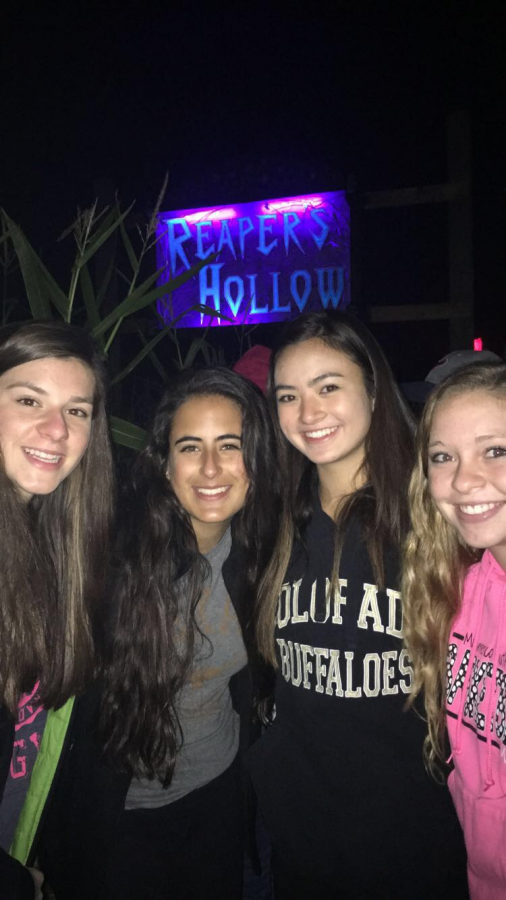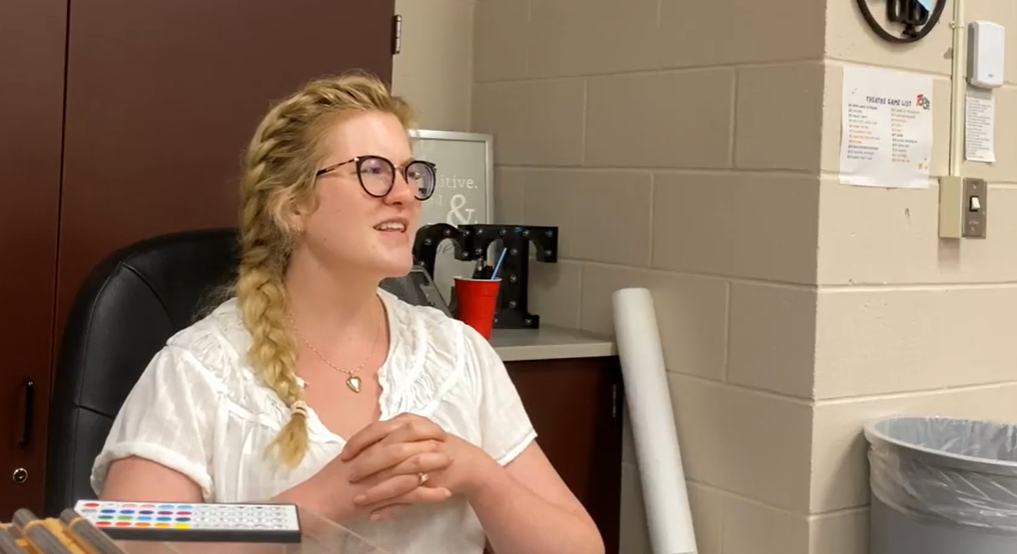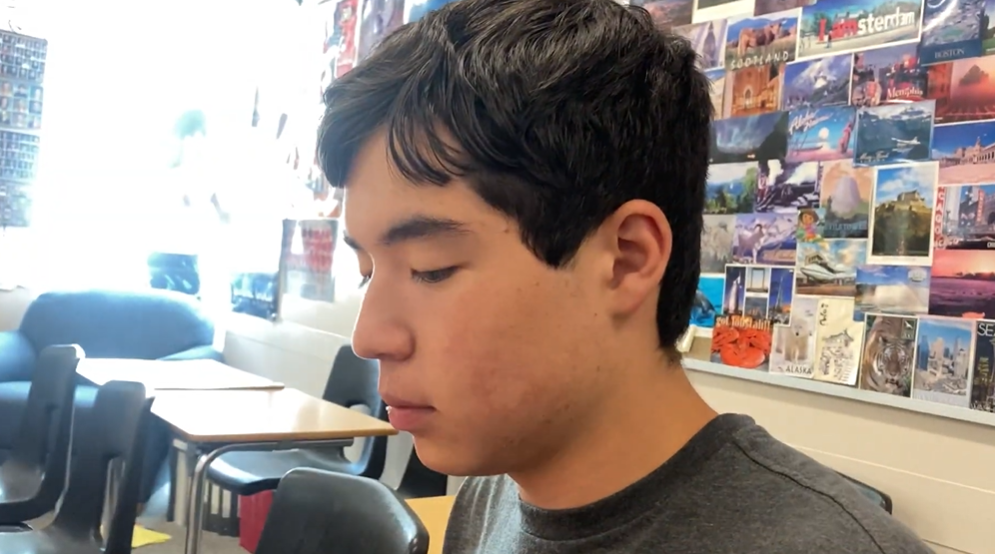Why We Like to Be Scared
It was all smiles and laughs outside of Reapers Hollow last year until the screeching of the solid gates were opened up to now juniors (Left to Right) Ellie Taylor, Abby Rios, Carolyn Letzig and Kelsey Gessner. “The scariest part is when you’re just going through it and you’re waiting for the first person to scare you,” Taylor said. All exclaimed to accelerated heart rates and screams in the highly rated corn maze. Each level of the haunted house included different horrific characters to stimulate the fear in every guest who dared to enter.
October 29, 2018
The deafening rev of a chainsaw, dark spaces, frightened shrieks from near and far, and loved ones clutched to each others sides as they pass by terrifying sights. These are all things to describe the experience of going to a haunted house and although the fear and frights are blatantly real, it’s not far fetched to say that the actual setting is closely related to that of a movie set.
With so many people going to haunted houses every year the question that arises is, what draws people into these horrifying experiences? Sociologist Dr. Margie Keer in a Ted talk in 2018 explained that “in the absence of real threat” the feeling of groundedness, focus, and a drive for survival caused by fear, can feel exhilarating.
“…It’s adrenaline, it’s the same principle as to why people go bungee jumping, or why they go skydiving, or why they ride roller coasters. A haunted house is a calculated risk where you know you’re going to get that…tingly buzz of excitement, that biochemical reaction for excitement and you’re seeking it out so it makes it safe,” Psychology teacher Mrs. Suzi Mckay said.
In addition to Mckay’s insights, Dr. Keer wrote in her article from Psychology Today, Why We Love To Be Scared, “This sophisticated system triggers a chemical cascade meant to help us survive: adrenaline, endorphins, dopamine, serotonin, oxytocin among others flood our bodies and brains during (and for a while after) a scary situation. But this response shares a lot with other high arousal responses, like when we’re happy, excited, and surprised.”
Along with the endorphins that cause the body to enjoy this high arousal response, Mrs. Mckay provided a psychological explanation to this love of fear, “…theories of emotion…say that the way we label an emotion tells our body how to feel it.” This being said, if we label the fear we feel during a haunted house as enjoyable then it becomes that in our minds.
Another aspect to the explanation behind why many people like to get scared is because of the social experience attached to it. “People don’t go to haunted houses by themselves…so you’re going to have this shared experience so that’s going to elevate your sense of entertainment as well,” Mrs. Mckay said. By experiencing fear along with friends and family makes the experience more enjoyable and socially oriented.
Many aspects- scientific, psychological, and social, are accountable for the desire many people have for going to haunted houses. Mckay noted this by saying “There’s…social, and biochemical, and cognitive reasons why we do those things and why we enjoy them.”
If you want to experience the tight spaces, lack of lighting, and sudden rush of fear induced by haunted houses this fall season, then check out these top rated scream fests in Colorado that have gathered the attention and late night shrieks of numerous students. The 13th Floor, Asylum, and Reapers Hollow have all received some of the highest ratings. With extended lengths and themes the horror seems non-stop, and the multiple themed attractions and escape rooms that the 13th floor includes is sure enough to scare even the bravest. While Reapers Hollow is outdoors, the depth of the attraction reassures the terror and isolation of the dark and dimly lit corn maze. Each checkpoint has its own creepy element throughout the maze so you’re sure enough to see it all.




